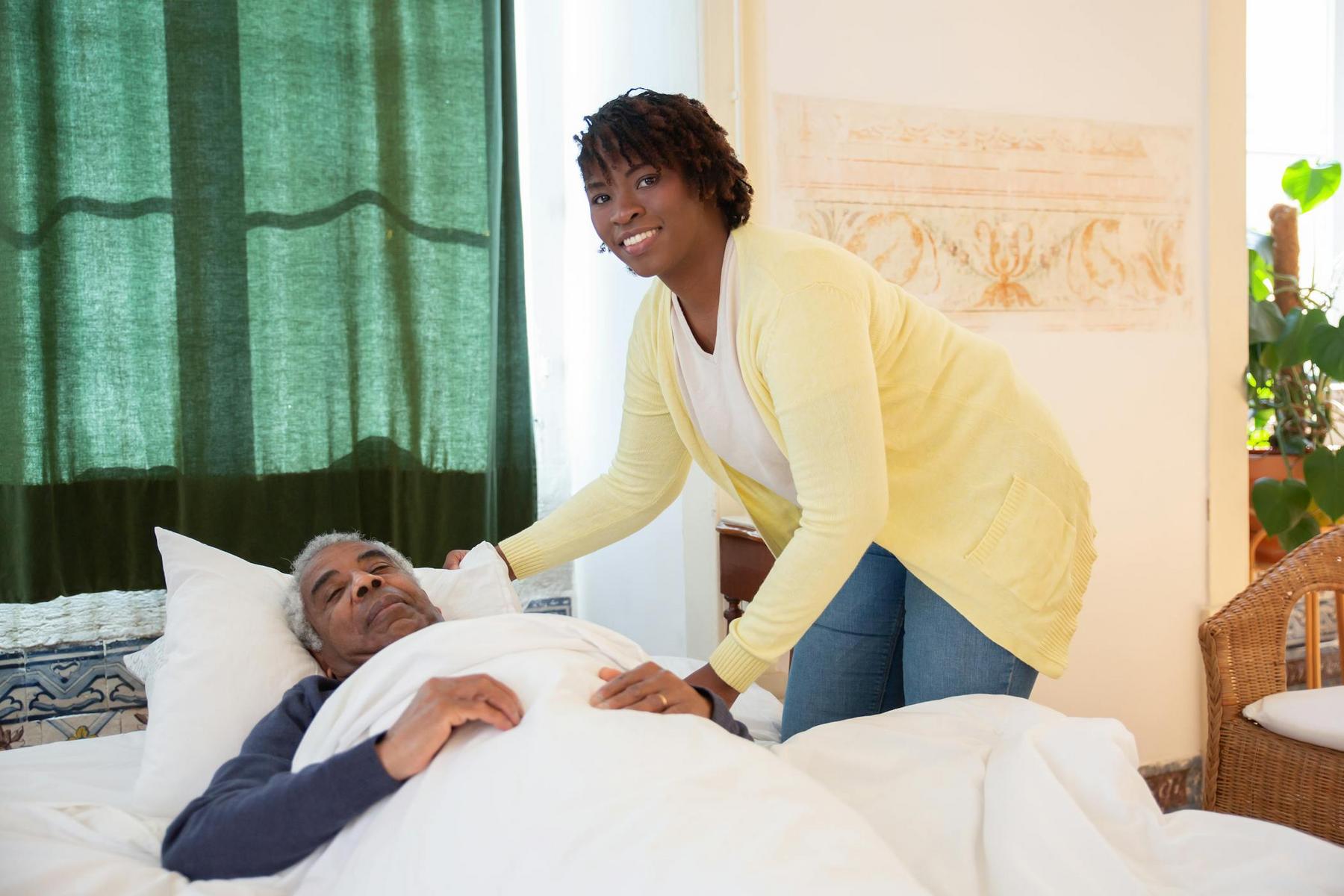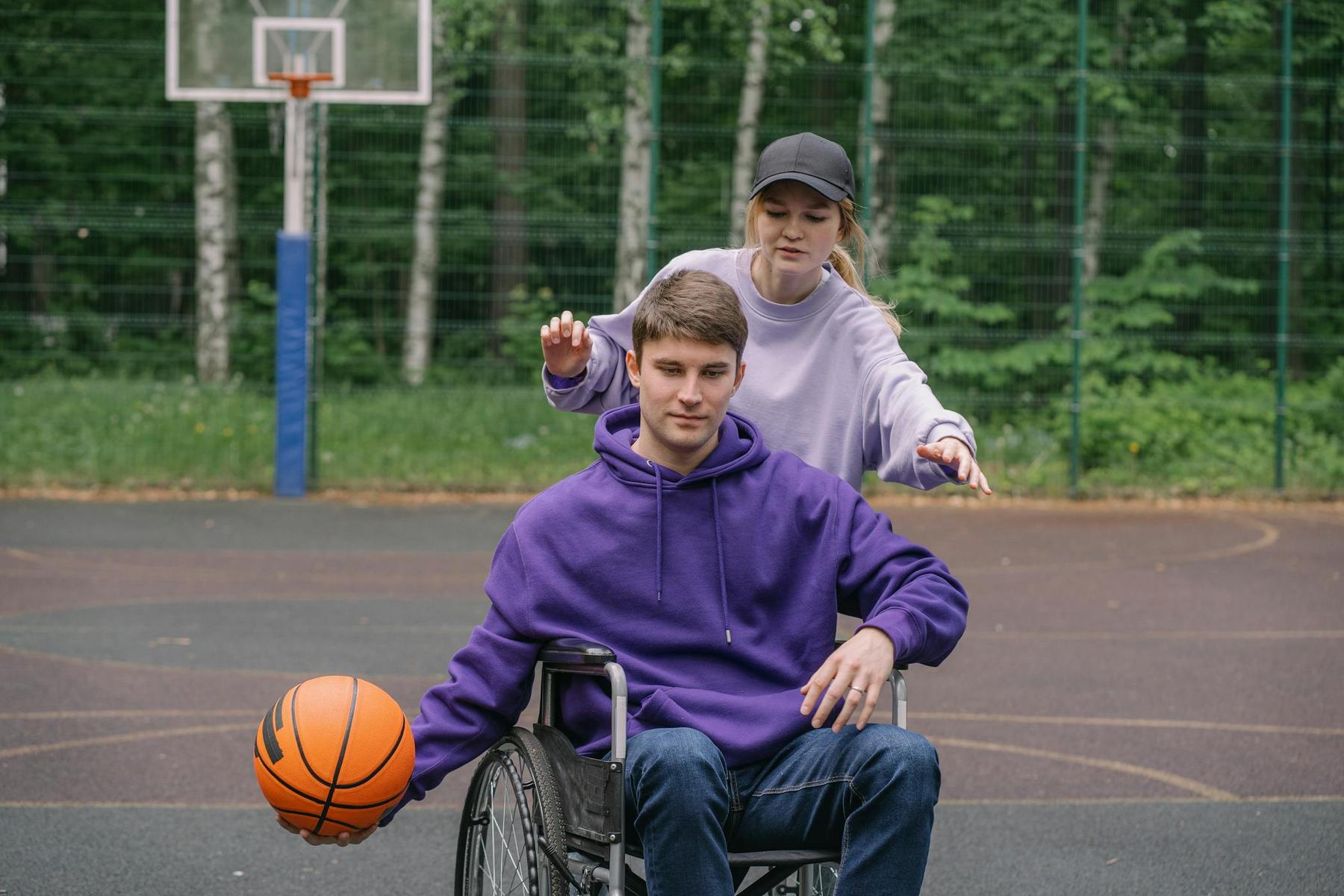Every day, thousands of Australians with disabilities face a deeply personal challenge: maintaining their hygiene and self-care routines with dignity intact. For many, these intimate daily tasks—showering, grooming, toileting—represent not just physical necessities, but fundamental aspects of identity, self-respect, and autonomy. Yet accessing appropriate support can feel overwhelming, raising questions about privacy, independence, and whether help means losing control over your own body and choices.
If you or someone you care about is navigating this terrain in Cairns or Brisbane, understanding how personal hygiene support under NDIS works can transform anxiety into empowerment. This support isn’t about dependence—it’s about creating pathways to independence whilst honouring the dignity that every person deserves.
What is Personal Hygiene Support Under NDIS?
Personal hygiene support under NDIS falls within the “Core Supports – Assistance with Daily Life” category, encompassing a comprehensive range of services designed to help participants maintain their personal care routines. This support recognises that hygiene needs are as individual as the people who require them.
According to the NDIS Commission’s Workforce Capability Framework, personal hygiene support includes assistance with showering and bathing, oral hygiene (teeth brushing and dental care), grooming tasks such as shaving and hair care, dressing and undressing, toileting and continence management, menstrual care, and the application of personal care products. These supports can be provided in various settings—participants’ homes, shared accommodations, Supported Independent Living (SIL) arrangements, or whilst engaging in community activities.
As of December 2024, the NDIS supports 692,823 participants across Australia, with personal hygiene support forming a critical component of their daily living assistance. For participants requiring high-intensity personal activities, support can extend to more complex care including tracheostomy care, enteral feeding assistance, catheterisation procedures, and medication administration related to personal hygiene needs.
In Queensland, where 4,089 participants receive Specialist Disability Accommodation funding and 3,933 SDA dwellings provide accessible environments for personal care, accessing quality personal hygiene support has become increasingly accessible across both metropolitan centres like Brisbane and regional areas including Cairns.
Why Does Dignity Matter in Personal Care Support?
Dignity sits at the heart of effective personal hygiene support under NDIS because intimate care tasks touch the very core of human vulnerability and self-worth. The NDIS Code of Conduct explicitly emphasises respect, dignity, and accountability in all support interactions, recognising that how support is delivered matters as much as what support is provided.
When support workers maintain privacy during hygiene tasks—closing doors, minimising bodily exposure, treating participants as whole people rather than tasks to complete—they preserve the fundamental respect every human being deserves. This approach creates an environment where participants feel safe, valued, and in control, even when requiring physical assistance.
Dignity in personal care encompasses several essential elements:
- Privacy and confidentiality form the foundation, ensuring personal information remains protected and intimate tasks occur in respectful settings.
- Person-centred approaches treat individuals according to their inherent worth, recognising preferences, routines, and individual choices rather than applying one-size-fits-all solutions.
- Clear communication involves explaining procedures, active listening, and involving participants in planning their own care routines.
Research and NDIS data indicate that appropriate personal hygiene support improves physical health whilst preventing skin conditions and infections, enhances mental health and emotional wellbeing, maintains social confidence enabling community participation, and preserves sense of self-worth and dignity. Among long-term NDIS participants, 80% report feeling empowered by the scheme, with 43% experiencing increased community and social participation after two years.
How Can NDIS Personal Hygiene Support Help You Maintain Independence?
Independence doesn’t mean doing everything alone—it means having the support you need to live life on your terms. Personal hygiene support under NDIS is specifically designed to maximise independence through skill development, choice and control, and the dignity of risk.
Skill development approaches gradually build capability:
Support workers can provide training in self-care tasks where possible, offering graduated assistance that moves from full support to prompting to eventual independence. They teach adaptive techniques for self-care and encourage self-directed care where safe and appropriate. For young participants aged 15-24, employment rates increased from 10% to 23% after receiving NDIS support, demonstrating how building daily living skills creates pathways to broader independence.
Choice and control remain central to the support model:
Participants select when hygiene support occurs, choose support worker gender when relevant for personal comfort, select their preferred personal care products, and remain involved in planning care routines. This autonomy extends to the dignity of risk—balancing duty of care with the right to make informed choices, recognising that restriction of choice can harm mental health and overall wellbeing.
With average adult NDIS plans providing approximately $65,700 to $66,000 in funding, participants have substantial resources to structure personal hygiene support according to their unique needs and independence goals. However, 21% of adult participant budgets remain unutilised, suggesting some individuals may benefit from additional support in understanding and accessing available services.
What Types of Personal Hygiene Assistance Are Covered by NDIS?
Understanding what personal hygiene support under NDIS covers—and what it doesn’t—helps participants plan effectively and access appropriate services in Cairns, Brisbane, and across Queensland.
| Support Category | Services Included | Not Covered | Queensland Considerations |
|---|---|---|---|
| Daily Hygiene Tasks | Showering/bathing assistance, toileting support, incontinence management, grooming, dressing assistance, oral care | Cost of toiletries, soaps, shampoos, general hygiene products | Available across Brisbane metro and regional Cairns |
| High-Intensity Activities | Complex personal care, tracheostomy care, catheterisation, enteral feeding assistance, medication administration | Healthcare services covered by other government programs | Requires appropriately trained support workers |
| Associated Support | Mobility assistance during personal care, supervision and prompting, menstrual care support | Home cleaning services, laundry products, cosmetics | May coordinate with transport assistance for appointments |
| Skill Development | Training for independence, adaptive technique teaching, graduated support reduction | General education or vocational training | Capacity building supports available statewide |
Queensland’s strong supply of High Physical Support housing (2,389 dwellings) means participants requiring accessible bathroom facilities and specialised equipment for personal hygiene support have options available, particularly throughout Brisbane and increasingly in regional centres like Cairns.
How Do You Access Personal Hygiene Support in Cairns and Brisbane?
Accessing personal hygiene support under NDIS involves several clear steps, with regional considerations for Queensland participants:
The Access Process
Step 1: NDIS Plan Development
During your planning meeting with an NDIS planner, discuss your specific hygiene support needs in detail. Be clear about daily tasks requiring assistance, preferred times for support, cultural or personal preferences affecting care delivery, and your independence goals. With 3,328 NDIS Planners operating across 137 locations nationally and NDIS properties throughout Queensland, planning support is accessible across both metropolitan and regional areas.
Step 2: Evidence and Assessment
Provide medical reports or functional capacity assessments supporting your need for personal hygiene assistance. This documentation helps demonstrate how support meets the NDIS “reasonable and necessary” criteria and ensures appropriate funding allocation.
Step 3: Funding Allocation
Personal hygiene support funding is allocated under Core Supports—the most flexible support budget category. This flexibility allows you to use funding across various daily living needs whilst prioritising personal care according to your requirements.
Step 4: Provider Selection
Choose from registered NDIS providers operating in Cairns and Brisbane, or hire support workers independently. Regional considerations matter—whilst metropolitan Brisbane offers numerous provider options, Cairns and far north Queensland participants may need to consider remote service delivery frameworks and flexible arrangements.
Step 5: Service Agreement
Establish a formal service agreement outlining specific services, hours, costs, and expectations. This agreement protects your rights whilst ensuring clear communication about support delivery.
Regional Queensland Factors
For participants in Cairns and regional areas, transport assistance may be coordinated with personal care support, community partnerships prove essential for service delivery, and flexible scheduling accommodates provider availability patterns. Brisbane participants typically access broader provider networks with more immediate availability.
What Should You Look for in a Personal Care Provider?
Choosing the right provider for personal hygiene support under NDIS significantly impacts your experience, dignity, and independence outcomes. Several key factors distinguish quality providers committed to person-centred care.
Registration and Compliance
Verify the provider is registered with the NDIS Commission and adheres to NDIS Practice Standards. These standards require services to be safe and appropriate, delivered with respect and dignity, supported by clear communication, and responsive to participant preferences. Providers must maintain robust governance including confidentiality policies, accessible complaint mechanisms, ongoing staff training, and regular quality reviews.
Support Worker Qualifications
Quality providers employ support workers who have completed disability support worker training, demonstrate competency in personal care provision, understand privacy and dignity requirements, hold current first aid and health and safety certifications, have undergone Working with Children/Blue Card checks, and receive training in respectful communication and person-centred care.
Person-Centred Approach
Look for providers who involve you in decisions affecting your care, tailor support to your unique needs and preferences, build relationships based on trust and respect, recognise your strengths and capabilities, and support your social participation and community engagement goals.
Cultural Sensitivity and Local Understanding
Providers operating in both Cairns and Brisbane should demonstrate understanding of regional differences, cultural diversity in Queensland’s communities, Indigenous perspectives and needs, and capacity to adapt service delivery to local contexts. The NDIA’s First Nations Strategy 2025-2030 and Culturally and Linguistically Diverse (CALD) inclusion priorities reflect growing recognition that culturally appropriate care enhances dignity and outcomes.
Consistency and Reliability
Personal hygiene support requires building trusting relationships. Providers offering consistent support workers rather than frequent roster changes, reliable scheduling that respects your routines, clear communication about any necessary changes, and backup arrangements when regular workers are unavailable create stability supporting dignity and comfort.
Supporting Your Wellbeing Through Personal Hygiene Assistance
Personal hygiene support under NDIS extends far beyond physical cleanliness—it fundamentally enables wellbeing, social participation, and quality of life. When delivered with dignity and respect, appropriate personal care support reduces depression and anxiety associated with dependency, maintains sense of identity and self-worth, supports emotional wellbeing, enhances social confidence enabling community participation, and prevents feelings of isolation.
The connection between personal hygiene support and broader life outcomes appears throughout NDIS data. Paid employment among families and carers of NDIS participants increased from 47% to 52%, suggesting that when participants receive appropriate support, family members gain capacity to engage in their own employment and activities. This ripple effect demonstrates how person-centred care benefits entire support networks.
Personal hygiene support complements other NDIS services including mobility assistance for safe movement during personal care, psychosocial support addressing mental health impacts, Specialist Disability Accommodation providing accessible environments, Supported Independent Living coordinating broader support needs, and capacity building developing skills for greater independence.
With NDIS scheme expenses tracking $740 million below projections whilst maintaining participant outcomes, and year-on-year growth slowing from 18.9% to 11.9% toward the sustainability target of 8%, the scheme demonstrates capacity to deliver quality personal hygiene support sustainably across Queensland and Australia.
Moving Forward with Confidence and Dignity
Personal hygiene support under NDIS represents far more than assistance with daily tasks—it embodies a fundamental commitment to dignity, respect, and independence for every Australian with disability. Whether you’re in bustling Brisbane or tropical Cairns, understanding your rights, available supports, and quality indicators empowers you to make choices aligned with your values and goals.
Recent NDIS amendments passed in August 2024 emphasise a participant-first approach with clearer definitions of funded supports, more transparent funding rules, enhanced protections, and improved access processes. These reforms strengthen the foundation for dignity-centred personal care across Queensland and Australia.
As you navigate personal hygiene support options, remember that independence looks different for everyone. Your right to dignity, privacy, choice, and respect remains constant regardless of support needs. Quality providers recognise this truth and structure services accordingly, treating you as the expert in your own life whilst offering skilled, compassionate assistance.
How much NDIS funding can I receive for personal hygiene support in Queensland?
Funding is provided under Core Supports within an NDIS plan and is based on individual assessed needs. Average adult plans provide approximately $65,700 to $66,000 in total funding, with the portion allocated to personal care varying depending on support intensity and individual requirements. Detailed planning and evidence during your NDIS planning meeting help ensure appropriate funding allocation.
Can I choose the gender of my support worker for personal hygiene assistance?
Yes, participants have the right to request a support worker of a specific gender to ensure personal comfort, cultural or religious alignment, and overall dignity. Quality NDIS providers accommodate such preferences during the service agreement process.
What’s the difference between personal hygiene support and home care services?
Personal hygiene support under the NDIS specifically addresses disability-related personal care needs such as showering, toileting, grooming, and dressing, while general home care services might include tasks like cleaning or laundry. The focus of personal hygiene support is on maintaining dignity and independence through individualized care.
How do I know if a personal care provider in Cairns or Brisbane meets NDIS quality standards?
Ensure that the provider is registered with the NDIS Commission and adheres to established NDIS Practice Standards. Look for evidence of robust governance, properly trained support workers, clear privacy and confidentiality policies, accessible complaint mechanisms, and positive feedback from current participants.
Can personal hygiene support help me develop more independence over time?
Absolutely. The NDIS model emphasizes skill development through graduated support. Providers work with participants to build self-care capabilities, gradually reduce assistance, and foster independence, all while ensuring safety, dignity, and respect.



